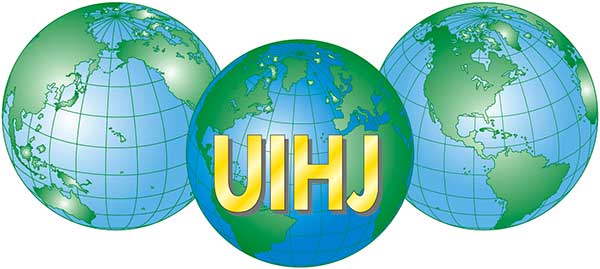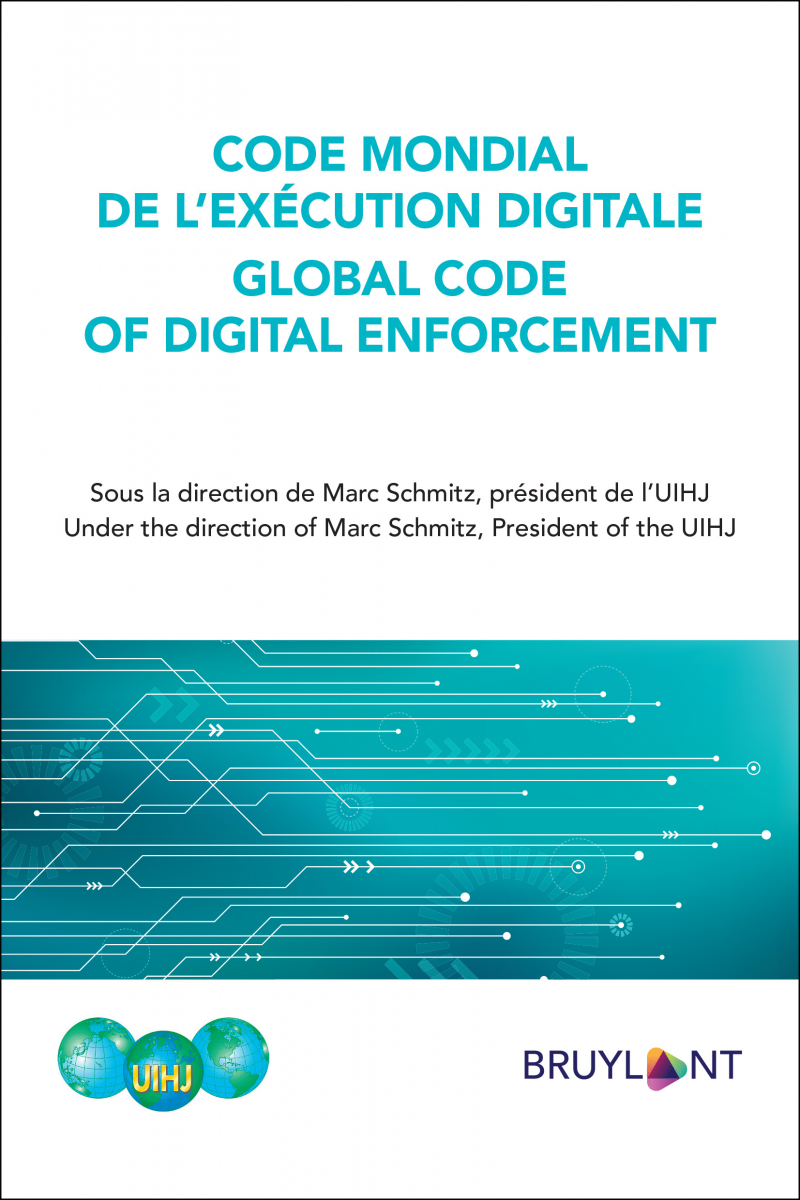The UIHJ presented during its 24th International Congress in Dubai the Global Code of Digital Enforcement.
Respect for the rule of law imposes effective and fair enforcement procedures: the right to the execution of enforcement titles is recognised worldwide as a factor in the development of a social and sustainable economy and a guarantee of legal security. For these reasons, the UIHJ formulated, in the Global Code of Enforcement presented in 2015, universal principles aiming at structuring and modernising enforcement procedures, and adapting them to economic and social issues. Considering that digitisation has become a global phenomenon which modifies all human activities, the UIHJ has decided to complete its work with a “Global Code of Digital Enforcement”, to define the principles which should govern enforcement of the future. The global COVID-19 health crisis has revealed that new technologies are needed to maintain human relationships when “face-to-face” contact is no longer possible. For economic players, the use of digital technology is an essential factor in ensuring the maintenance of economic activity and its recovery after lockdowns. For the functioning of justice, digitalisation makes it possible to guarantee access to the judge; for judicial officers and enforcement agents, it constitutes an effective means of executing enforceable titles.
Enforcement professionals are strongly impacted by the digitalisation of justice and enforcement of court decisions, whether it is the electronic communication of documents, access to dematerialised registers, the dematerialisation of enforcement procedures, the digital management of professional activities, or the use of artificial intelligence to set up automated enforcement. In addition, new goods are appearing with digitisation (cryptocurrency for example), which forces us to think about seizure procedures adapted to these digital goods, which by their very nature are global.
The purpose of the Global Code of Digital Enforcement is to define universal principles which states should introduce into their national legislation, to govern the use of digital technology in the enforcement of court decisions and contracts. It defines the principles applicable to all aspects of digital enforcement in civil matters (criminal and administrative proceedings are excluded unless national law allows the application of civil law enforcement measures) and encompasses the new ethical obligations inherent in the use of artificial intelligence in enforcement. In order to take into account the new digital assets, the Global Code of Digital Enforcement proposes standard procedures for seizing cryptoassets (these are assets in the private domain, excluding assets belonging to public authorities in the exercise of their sovereign powers). Digital enforcement as the term is used in this Code therefore not only refers to procedural aspects of enforcement (‘e-enforcement’), but also to substantive aspects (‘enforcement against digital assets’). Also, both are possible: e-enforcement against digital assets.
The work was carried out under the aegis of representatives from all continents, academics, judges, and enforcement professionals, and reflects the points of convergence of all enforcement systems. It was approved by the Scientific Council of the UIHJ at its meeting on 21 June 2021.
The Global Code of Digital Enforcement should be a source of inspiration for national and international legislators and serve as a guide of good practices for the various enforcement actors, judicial officers and enforcement agents, and any authority empowered by national law to execute enforceable titles.
The work was carried out by the Scientific Council of the UIHJ:
- Robert Emerson, Huber Hurst professor of Business Law, Warrington College of Business Administration, University of Florida (USA);
- Frédérique Ferrand, professor at the University Jean Moulin Lyon III (France);
- Natalie Fricero, professor at the University of Nice (France);
- Burkhard Hess, professor at the Universities of Tubingen and Heidelberg (Germany), Director of the Max Planck Institute Luxembourg;
- Ton Jongbloed, Professor at the University of Utrecht (the Netherlands);
- Aida Kemelmajer de Carlucci, professor at the University of Mendoza (Argentina);
- Paula Meira Lourenço, assistant-professor at the University of Lisbon (Portugal);
- Dimitrios Tsikrikas, professor at the University of Athens (Greece);
- Pimonrat Vattanahathai, Senior Judge at the Court of Appeal of Bangkok (Thailand);
- Vladimir Yarkov, professor at the University of Ural Ekaterinburg (Russian Federation).
The works of the Scientific Council were placed under the presidency of Marc Schmitz, President of the UIHJ.
Co-authors of the Global Code of Digital Enforcement:
- Françoise Andrieux, Honorary President of the UIHJ;
- Mathieu Chardon, 1st Vice-President of the UIHJ;
- Nathalie Fricero, professor at the University of Nice (France), member of the Scientific Council of the UIHJ;
- Patrick Gielen, judicial officer (Belgium), member of the Innovation Team of the UIHJ, special adviser to the President of the UIHJ;
- Jacques Isnard, Honorary President of the UIHJ;
- Rui Miguel Simão, Secretary of the Board of the General Council of Solicitadores of Portugal;
- Jos Uitdehaag, Secretary of the Board of the UIHJ;
- Sjef van Erp, Professor emeritus at the University of Maastricht (the Netherlands), past Vice-President of the European Law Institute.
The Global Code of Digital Enforcement is dedicated to the memory of Jacques Isnard (3 September 1942 – 23 November 2020), President of the UIHJ from 1994 to 2009, Honorary President of the UIHJ.





